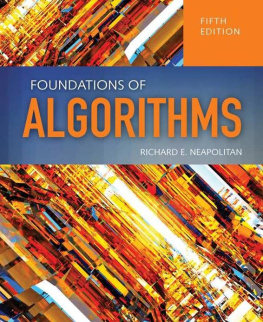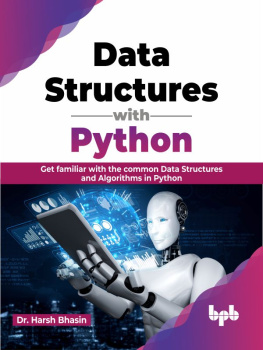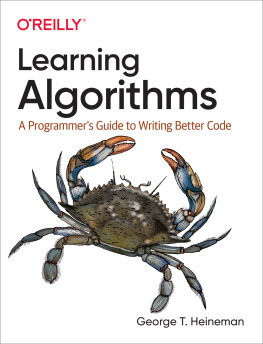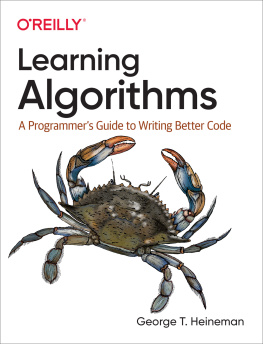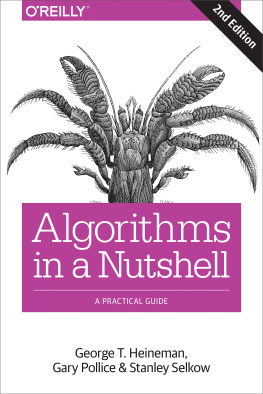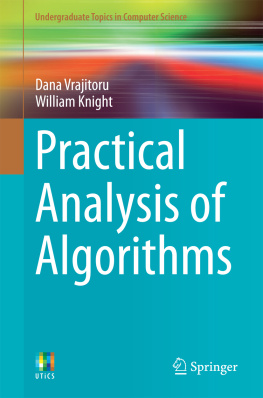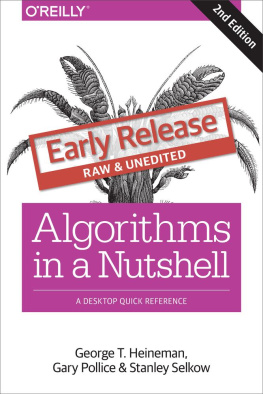
World Headquarters
Jones & Bartlett Learning
5 Wall Street
Burlington, MA 01803
978-443-5000
www.jblearning.com
Jones & Bartlett Learning books and products are available through most bookstores and online booksellers. To contact Jones & Bartlett Learning directly, call 800-832-0034, fax 978-443-8000, or visit our website, www.jblearning.com.
Substantial discounts on bulk quantities of Jones & Bartlett Learning publications are available to corporations, professional associations, and other qualified organizations. For details and specific discount information, contact the special sales department at Jones & Bartlett Learning via the above contact information or send an email to .
Copyright 2015 by Jones & Bartlett Learning, LLC, an Ascend Learning Company
All rights reserved. No part of the material protected by this copyright may be reproduced or utilized in any form, electronic or mechanical, including photocopying, recording, or by any information storage and retrieval system, without written permission from the copyright owner.
The content, statements, views, and opinions herein are the sole expression of the respective authors and not that of Jones & Bartlett Learning, LLC. Reference herein to any specific commercial product, process, or service by trade name, trademark, manufacturer, or otherwise does not constitute or imply its endorsement or recommendation by Jones & Bartlett Learning, LLC and such reference shall not be used for advertising or product endorsement purposes. All trademarks displayed are the trademarks of the parties noted herein. Foundations of Algorithms, Fifth Edition is an independent publication and has not been authorized, sponsored, or otherwise approved by the owners of the trademarks or service marks referenced in this product.
There may be images in this book that feature models; these models do not necessarily endorse, represent, or participate in the activities represented in the images. Any screenshots in this product are for educational and instructive purposes only. Any individuals and scenarios featured in the case studies throughout this product may be real or fictitious, but are used for instructional purposes only.
Production Credits
Executive Publisher: William Brottmiller
Publisher: Cathy L. Esperti
Acquisitions Editor: Laura Pagluica
Editorial Assistant: Brooke Yee
Director of Production: Amy Rose
Associate Production Editor: Sara Fowles
Marketing Manager: Cassandra Peterson
VP, Manufacturing and Inventory Control: Therese Connell
Composition: diacriTech
Cover Design: Kristin E. Parker
Director of Photo Research and Permissions: Amy Wrynn
Cover Image: satori13/iStock/Thinkstock (top and bottom); mastaka/iStock/Thinkstock (title background)
Printing and Binding: Edwards Brothers Malloy
Cover Printing: Edwards Brothers Malloy
Library of Congress Cataloging-in-Publication Data
Neapolitan, Richard E., author.
Foundations of algorithms.
Fifth edition / Richard Neapolitan, PhD, Northwestern University.
p ; cm
Includes bibliographical references and index.
ISBN 978-1-284-04919-0 (pbk.)
1. Algorithms. 2. Constructive mathematics. 3. Computational complexity. I. Title.
QA9.58.N43 2015
518.1dc23
2013050988
6048
Printed in the United States of America
18 17 16 15 14 10 9 8 7 6 5 4 3 2 1
In memory of my friend Jack, who made life fun
Richard E. Neapolitan
Preface
T his fifth edition of Foundations of Algorithms retains the features that made the previous editions successful. As in those editions, I still use pseudocode and not actual C++ code. The presentation of complex algorithms using all the details of any programming language would only cloud the students understanding of the algorithms. Furthermore, the pseudocode should be understandable to someone versed in any high-level language, which means it should avoid details specific to any one language as much as possible. Significant deviations from C++ are discussed on pages 57 of the text. This text is about designing algorithms, complexity analysis of algorithms, and computational complexity (analysis of problems). It does not cover other types of analyses, such as analysis of correctness. My motivation for writing this book was my inability to find a text that rigorously discusses complexity analysis of algorithms, yet is accessible to computer science students at mainstream universities such as Northeastern Illinois University. The majority of Northeasterns students have not studied calculus, which means that they are not comfortable with abstract mathematics and mathematical notation. The existing texts that I know of use notation that is fine for a mathematically sophisticated student, but is a bit terse for Northeasterns student body.
To make this text more accessible, I do the following:
assume that the students mathematics background includes only college algebra and discrete structures;
use more English description than is ordinarily used to explain mathematical concepts;
give more detail in formal proofs than is usually done;
provide many examples.
This text is targeted to a one-semester upper-level undergraduate or graduate course in the design and analysis of algorithms. It is intended to provide students with a basic of understanding of how to write and analyze algorithms and to impart to them the skills needed to write algorithms using the standard algorithm design strategies. Previously, these included divide-and-conquer, dynamic programming, the greedy approach, backtracking, and branch-and-bound. However, in recent years the use of genetic algorithms has become increasingly important to the computer scientist. Yet a student would only be introduced to such algorithms if the student took a course related to artificial intelligence. There is nothing inherent in genetic algorithms that relegates them to the domain of artificial intelligence. So, to better provide a repertoire of current useful techniques, I have added a chapter on genetic algorithms and genetic programming in this edition.
Because the vast majority of complexity analysis requires only a knowledge of finite mathematics, in most of the discussions I am able to assume only a background in college algebra and discrete structures. That is, for the most part, I do not find it necessary to rely on any concepts learned only in a calculus course. Often students without a calculus background are not yet comfortable with mathematical notation. Therefore, wherever possible, I introduce mathematical concepts (such as big O) using more English description and less notation than is ordinarily used. It is no mean task finding the right mix of these two; a certain amount of notation is necessary to make a presentation lucid, whereas too much vexes many students. Judging from students responses, I have found a good mix.
This is not to say that I cheat on mathematical rigor. I provide formal proofs for all results. However, I give more detail in the presentation of these proofs than is usually done, and I provide a great number of examples. By seeing concrete cases, students can often more easily grasp a theoretical concept. Therefore, if students who do not have strong mathematical backgrounds are willing to put forth sufficient effort, they should be able to follow the mathematical arguments and thereby gain a deeper grasp of the subject matter. Furthermore, I do include material that requires knowledge of calculus (such as the use of limits to determine order and proofs of some theorems). However, students do not need to master this material to understand the rest of the text. Material that requires calculus is marked with a 
Next page
